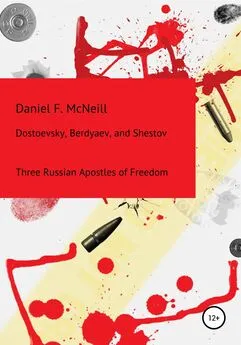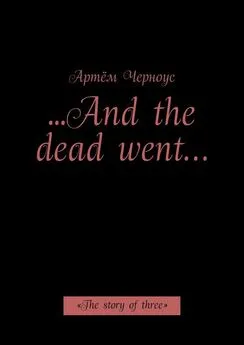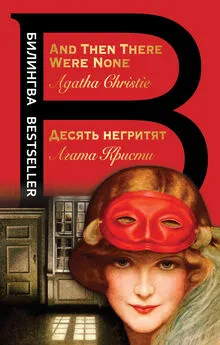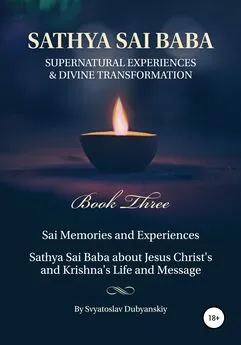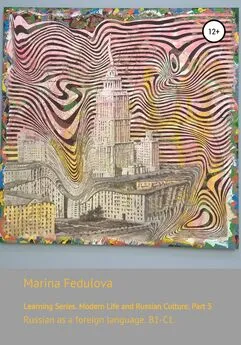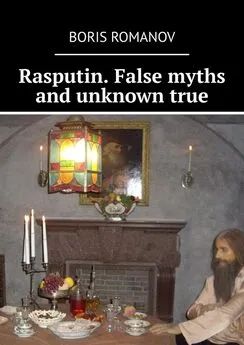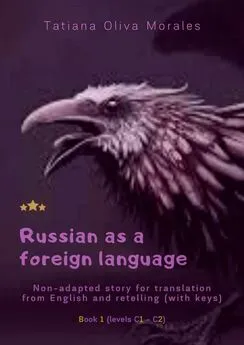Daniel McNeill - Dostoevsky, Berdyaev, and Shestov. Three Russian Apostles of Freedom
- Название:Dostoevsky, Berdyaev, and Shestov. Three Russian Apostles of Freedom
- Автор:
- Жанр:
- Издательство:неизвестно
- Год:2020
- ISBN:978-5-532-04954-3
- Рейтинг:
- Избранное:Добавить в избранное
-
Отзывы:
-
Ваша оценка:
Daniel McNeill - Dostoevsky, Berdyaev, and Shestov. Three Russian Apostles of Freedom краткое содержание
Dostoevsky, Berdyaev, and Shestov. Three Russian Apostles of Freedom - читать онлайн бесплатно ознакомительный отрывок
Интервал:
Закладка:
She reads the whole story of the raising of Lazarus from the dead. In the night, in the dark room lit just by a candle, the murderer watches a saintly young girl reading “distinctly and forcibly as though she were making a public confession of faith”. When she finishes her long reading, the two are silent in the dark room for five minutes. They have known one another since Marmeladov spoke of his daughter to Raskolnikov in the tavern saying passionately that her salvation is certain because she “has loved much” and they have been joined mysteriously since Sonya entered his room suddenly and angelically to invite him to attend her father’s burial and her stepmother’s reception, joined perhaps also when Sonya sent to him her stepsister Polenka with her childish love, and now joined forever because Raskolnikov has uncovered her secret strength, the divine love that lives in her soul, joined forever because now he has seen her faith as she read to him the story of Jesus raising Lazarus from death. But joined as they are they are also separated! It is a kind of miracle in reverse that Dostoevsky has invented. They are joined miraculously but at the same time they are adversaries. Raskolnikov will not move an inch from his imprisonment in his mind and believe. The truth is that he is so locked in the embrace of his mind that he is powerless to move to the other part of his being, the place where in Sonya’s being she lives truly. But Sonya will not move an inch either. She accepts him as the partner of her life forever but never does she accept his condition of unbelief. A silent war goes on between the soul of one and the mind of the other.
Breaking the five minute silence, Raskolnikov confesses to her that he has broken completely with his family. “‘I have only you now,’ he added. ‘Let us go together.…I’ve come to you, we are both accursed, let us go our way together!’”
“‘Go where?’ she asked in alarm and she involuntarily stepped back.” “‘How do I know? I only know it’s the same road, I know that and nothing more. It’s the same goal!’”
They go on talking feverishly back and forth, joined and separated, talking words that come from different centers of being. Sonya has read to him from the New Testament, read as a public confession the words of belief that Martha said to Jesus, words that she read as though they were her own and words that she read as though if Raskolnikov could say them as his own, his heart might open to love and he might believe. She said before him with religious feeling, “Yea, Lord: I believe that Thou art the Christ, the Son of God which should come into the world.”
But Raskolnikov will not say such words as his own. She asks him after talking much what is to be done.
“What’s to be done? Break what must be broken, once for all, that’s all, and take the suffering on oneself. What, you don’t understand? You’ll understand later…Freedom and power, and above all, power. Over all trembling creation and the antheap!…That’s the goal, remember that! That’s my farewell message.”
He is soon off away into the night after admitting to Sonya that he knows who murdered her friend Lizaveta and that if he comes back the next day, he will tell her who it is. But not for a moment does the idea enter her head that the murderer could be Raskolnikov. She is as extremely good in her thoughts as he is extremely bad in his.
He visits Sonya again at her room with the intention of confessing to her that he is the murderer of Lizaveta, her friend. But he is unable to confess the truth at once and instead tortures her with questions about who is worthy to live and who to die.
“‘You better say straight out what you want!’ Sonya cried in distress. ‘You are leading up to something again…Can you have come simply to torture me?’”
But he is still unable to speak the truth. He is in a kind of delirium. He leads up to the confession but does not confess. Finally he makes her guess the truth. She is shocked but abandoning him is as far from her mind as the awful truth is now solidly established in her mind.
“‘There is no one – no one in the whole world now so unhappy as you!’ she cried in a frenzy…” She begins weeping.
“A feeling long unfamiliar to him flooded his heart and softened it at once. He did not struggle against it. Two tears started into his eyes and hung on his eyelashes.
‘Then you won’t leave me, Sonya?’ he said, looking at her almost with hope.
‘No, no, never, nowhere!’ cried Sonya. ’I will follow you, I will follow you everywhere…’”
But for a few moments she can not believe he did it and asks him how it could have happened. He in turn has moments when he regrets letting her know the truth. She asks him to explain why he did it and he struggles to give her answers. She has touched his heart and brought tears to his eyes but he still is far from true redemption which is only possible if she can influence him to follow the feelings of his heart and discover the love that exists in his soul.
He goes into a long ramble to explain why he did it. “‘And you don’t suppose that I went into it headlong like a fool? I went into it like a wise man and that was just my destruction…I wanted to murder without casuistry, to murder for my own sake, for myself alone!…It wasn’t to help my mother I did the murder…I wanted to find out something else; it was something else led me on. I wanted to find out then and quickly whether I was a louse like everybody else or a man. Whether I can step over barriers or not, whether I dare stoop to pick up or not, whether I am a trembling creature or whether I have the right …’
‘To kill? Have the right to kill?’ Sonya clasped her hands.
‘Ach, Sonia!’ he cried irritably and seemed about to make some retort, but was contemptuously silent.”
Sonia argues that he must go to the police and confess his guilt. But he has doubts about doing what she wants because at bottom he does not believe he is guilty. He has done the murder so intentionally, so rationally that guilt is impossible and redemption and divine forgiveness just as impossible. Sonya haunts him, following him in his movements around Petersburg whenever she can. Dostoevsky thus reverses the usual kind of haunting. Instead of the devil haunting a good soul, a good soul haunts a devil. She will not leave him ever. When Raskolnikov enters the police station finally to confess, he has second thoughts and leaves the building. Outside he sees Sonya standing not far from the entrance, “pale and horror-stricken. She looked wildly at him. He stood still before her. There was a look of poignant agony, of despair, in her face. She clasped her hands. His lips worked in an ugly, meaningless smile. He stood still a moment, grinned and went back to the police office.”
At his trial he expresses no remorse or guilt for his crime. He is condemned to penal servitude in Siberia for eight years. Sonya follows him to Siberia and lives in a town near his prison. She lives only for him and does not bother him with thoughts about religion. Raskolnikov himself asks her after a year to lend him her copy of the New Testament. “It was the one from which she had read the raising of Lazarus to him.” But he does not take it up and start reading it right away. Its influence may be in his future but only his imprisonment is now sure and Sonya haunting him and waiting for him nearby with nothing to sustain her except her secret treasure .
6
A main character in Dostoevsky’s last novel, The Brothers Karamazov , Ivan Karamazov, says that if there is no God then we are free to do anything. The European existentialist philosophers took up this idea and held that all human acts must result from free choices since in a godless universe human being has no foundation. The French philosopher Jean-Paul Sartre went so far as to say that man is “condemned to be free”. Dostoevsky held that freedom must be the supreme human value, but instead of denying the existence of God in order to act freely like some existentialists, he reasoned that finding God is possible if we reach a state of spiritual and intellectual freedom. The groundless freedom Dostoevsky felt in himself inspired him to create any kind of character ready to think or to do anything at all. Logical thought and free will result in human choices that create a world where human behavior is forced to follow a premeditated pattern dictated by reason. The more man accepts to live a life ruled by his reason and a knowledge arrived at using the same logic used by scientists, the less able he is to discover the world within him of God’s divine grace which has nothing to do with reason and knowledge. God can control everything but he will not. He will not interfere with man’s freedom to do and think whatever he wants. For Dostoevsky grace is a divine gift, a secret treasure , but total freedom is also a divine gift, perhaps a more important one. God gives humans his divine grace freely but he can not give it or he will not give it to people who live enslaved by a rationalized intentional way of living. Dostoevsky’s rootless creations are enslaved by a power that does not originate in God.
Raskolnikov fascinates us because he appears free in a way that is far beyond normal freedom. But his thoughts are transitory and negative. They rise up but are soon gone replaced by new thoughts and new ideas. His freedom grounded in his mind leads him nowhere, to an unreal inhuman state. He ultimately reveals that he is a fiction, a self freely created uselessly by a mind based on nothing. Sonya is free because the cruelty and the injustice of the world force her to be free. Insults, suffering, loathsomeness do not allow her mind to create for her some comforting fictitious but practical self based on nothingness. Everything has been taken from Sonya. The hatred and cruelty around her in the world have stripped her of normal human falsity and forced her to retreat into her soul. Because she must give up everything, she finds everything. The meek and the suffering inherit the world because the powerful of the world despise them and crush them. The world forces Sonya to flee into the nothingness in her soul where she discovers miraculously a secret treasure .
Some of Dostoevsky’s other characters, like Sonya, give evidence of secret treasure within them but most of them are groundless, on their own, disconnected from the normal world and also from the world of God. He constructed characters from nothing and delighted in watching them try to assert their extreme individuality among regular, normal people. He created a comedy so divine that the more he created living beings from nothing, the more he became sure that God was helping him create them in order to show the world that nothing can ever be as vital as a divine presence in the human heart. For Dostoevsky life for humans must be free and without any foundation because there is a God.
7
In one of his early novels published in 1846, The Double , his hero Mr. Golyadkin, a minor government official, discovers the appearance of another Mr. Golyadkin, another being exactly like himself. At the beginning of the novel before his double appears, he consults a doctor because he feels mentally unbalanced. It is natural to think as his strange story develops that he loses his reason. In reality he never loses his reason and he becomes more and more unbalanced and delirious because he is horrified that he is losing not his reason but his self. His self appears to him in a form exactly like himself in every detail, as a living foreign himself exactly like himself. His double arrives on the scene and this other alien self that is also himself becomes more dominant in their relations with one another than himself. Reason is always able to guide us to some logical and practical end. We feel it is a necessary integral part of our normal behavior that helps us directly. But when our imagination runs wild for some unknown reason, when our emotions start going berserk and we appeal to our reason, we find that our reason is still present but is indifferent to our trouble and of no help. Mr. Golyadkin’s reason tells him with indifference that he is the real Mr. Golyadkin and that the other Mr. Golyadkin is also the real Mr. Golyadkin. Reason does not abandon the poor man at all and merely remains a useless presence in his mind indifferent to the delirious state of his feelings. As the other false Mr. Golyadkin becomes more and more dominant and as the reason of the real Mr. Golyadkin is without any power to distinguish between the two and establish who is real and who is unreal, the feelings of the original Mr. Golyadkin go more and more berserk as he begins doubting that he is in fact real. He is forced to enter a mental hospital. His double walks behind the carriage bringing the original Mr. Golyadkin to his new home and as he arrives there, disappears. Dostoevsky’s message is that Raskolnikov’s self, Mr. Golyadkin’s self, our selves may not be real. Our reason allows our imagination to create a self for ourselves and on our journey through life we must carefully keep presenting our invented self to others in a conventional package with few deviations. We feel comfortable with ourselves because other selves around us accept our invention of our self as real. Poor Mr. Golyadkin can not feel authentic facing his double’s invention of himself because it is in fact himself and only he should have the right to invent himself! By way of contrast, Sonya’s self is barely imaginable to herself. The self she constructed for herself naturally has been humiliated, crushed, destroyed. The world will no longer let her invent, it will only let her be. But normal being causes her suffering that is relieved only by the secret treasure she feels living in her heart. Unfortunately Raskolnikov and Mr. Golyadkin, who care nothing for the life of the heart, must rely only on themselves for strength and they discover that their inventions of themselves are not as reliable as they think.
Читать дальшеИнтервал:
Закладка:
